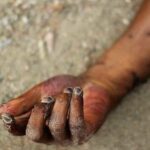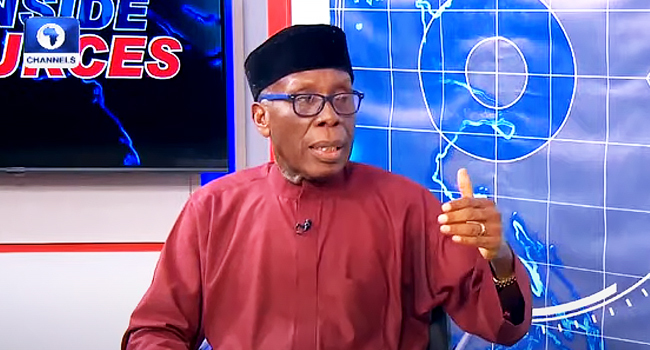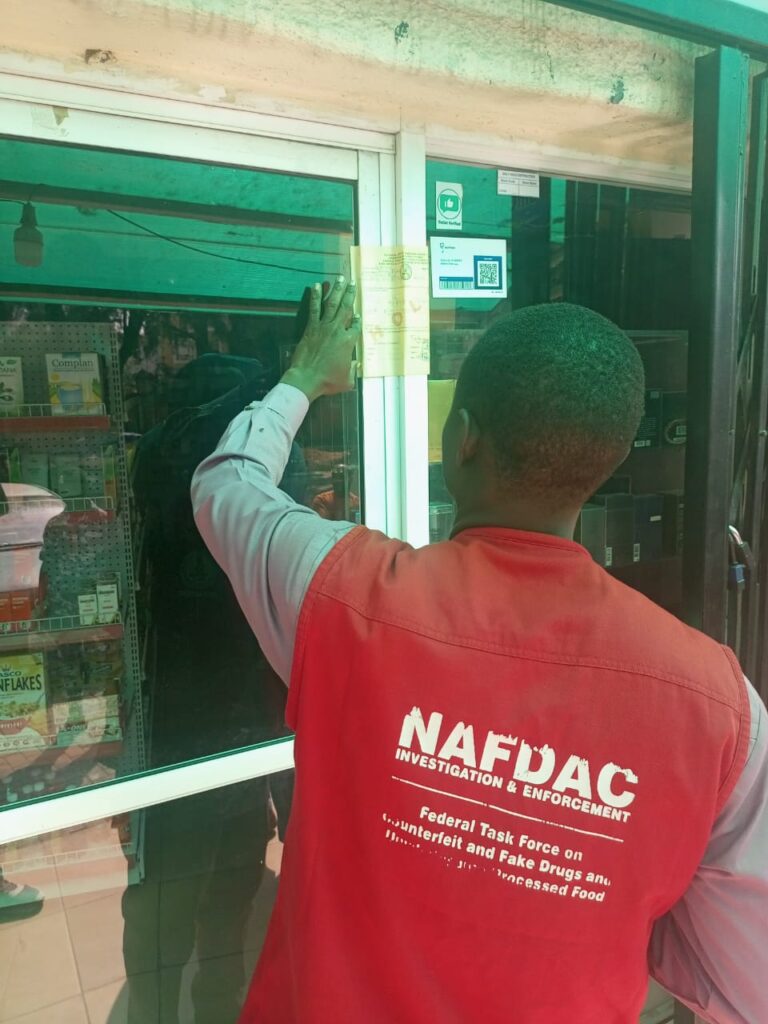Former Minister of Agriculture, Audu Ogbeh has revealed how the federal government can deal with states setting up illegal caretaker committees for Local Government (LG) administrations.
According to him, FG can stop the trend by stopping the payment of monthly allocations to states whose governors set up caretaker committees for administration of Local Government areas.
“Any governor who sets up a caretaker committee should not receive any funds because a caretaker is illegal, by the Supreme Court. Don’t send them cash, deduct their own and keep it,” the 76-year-old ex-minister said on Inside Sources with Laolu Akande, a socio-political programme aired on Channels Television on Friday.
There are 774 local government areas in the country but the efficiency of the third tier of government has been hampered by the weight of some controlling and overbearing governors who have been accused of mismanaging funds meant for the administration of local governments.
In the last few months, calls for local government autonomy have increased in Nigeria. President Bola Tinubu has also supported the calls and in May the Federal Government sued the 36 state governors over alleged misconduct of local government funds.
Currently, the Federal Government gets 52.68%, and states get 26.72%. In comparison, LGs get 20.60% of the country’s monthly revenue allocated by the Revenue Mobilisation Allocation and Fiscal Commission (RMAFC) which operates under the Presidency, and disbursed by the Federation Account Allocation Committee (FAAC).
Interestingly, LG funds are paid into a joint account operated by state governments and local governments in their domains.
Ogbeh, a former National Chairman of the Peoples Democratic Party (PDP), said the Federal Government should discontinue the payment of LG funds to such joint accounts and move it to accounts solely operated by local government administrations.
“I can’t be sending you money that disappears. You don’t repair primary schools, you don’t do anything, the money vanishes and they say they are paying workers, for which work? Strolling around in the morning and drinking palm wine? These are the issues. Those failures are creating dangerous problems for the country,” he said.
He said some governors appoint their stooges as caretaker chairmen for local governments, give them stipends and divert the large chunks of the money allocated for local government administration to questionable quarters.
The Nigerian agriculture minister from 2015 to 2019 backed the move by the Federal Government through the Attorney General of the Federation (AGF), Lateef Fagbemi, to restore financial and legislative autonomy to local governments in the country.
He said the President and the 36 state governors should sit down and decide what they want to do with local governments.
The Benue-born politician said should the LG system be functional, many social and environmental challenges ubiquitous in the country won’t be experienced.
“Here you have a system which unfortunately is not working. If it were working, a lot of these problems would not be there. You have a governor in the state and there are 10, 15 local governments, and the local government is failing,” he said.
He said governors ought to see local governments as partners in progress for the overall development of the people, especially in providing potable water for people and curbing the spread of infectious diseases like Cholera, repairing dilapidated primary and second school classrooms, storing drugs at healthcare centres in their domains, and provide other basic amenities for the comfort of people.
The ex-minister said the LG system should be scrapped if governors won’t allow it to function the way it ought to.
“What I want to say to Nigerians, if we don’t want the local government system, scrap it, if it were allowed to work, it would have been a fantastic system,” he said.
He said governors are building anger and frustration among people at the grassroots through the arbitrary dissolution of constitutionally elected LG chairmen and the imposition of caretaker chairmen.



























